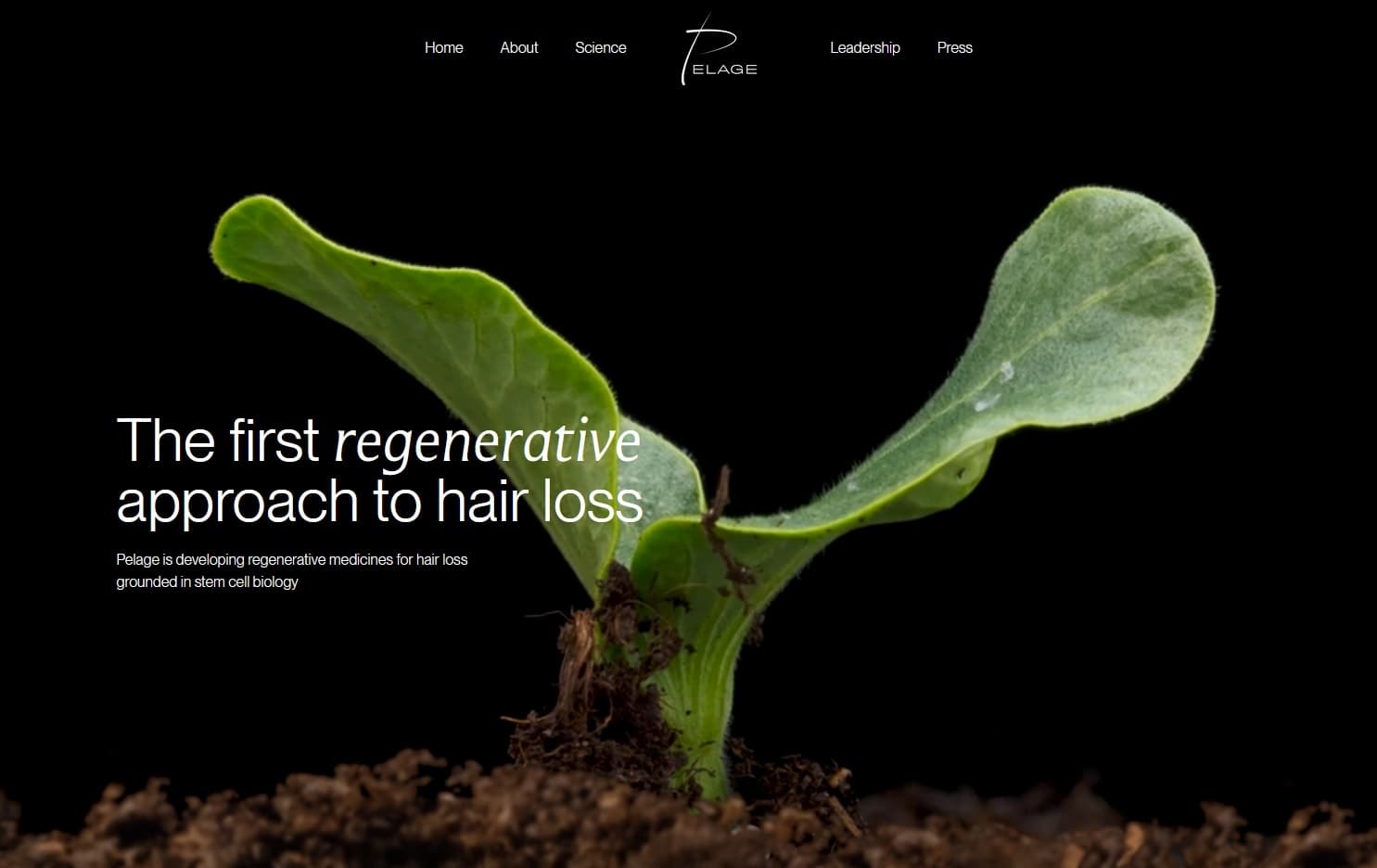
Pelage Pharmaceuticals Secures $120 Million Series B Funding for Regenerative Hair Growth Therapy
TL;DR
Pelage Pharmaceuticals secured $120 million from top investors to develop PP405, offering a first-in-class hair restoration therapy with significant market potential in the $10 billion hair loss industry.
Pelage's PP405 is a topical small molecule in Phase 2a trials that works by reactivating dormant hair follicle stem cells to stimulate natural hair growth through stem cell activation.
Pelage's regenerative hair therapy could improve psychological well-being for millions experiencing hair loss by providing a non-invasive treatment that restores natural hair growth and confidence.
Pelage Pharmaceuticals uses breakthrough stem cell biology to create a topical treatment that awakens dormant hair follicles, potentially revolutionizing hair restoration through the body's own regenerative power.
Pelage Pharmaceuticals, a clinical-stage regenerative medicine biotechnology company based in Los Angeles, has secured $120 million in Series B financing to accelerate development of its flagship hair restoration therapy. The funding round was co-led by ARCH Venture Partners and GV (formerly Google Ventures), with participation from existing investors Main Street Advisors, Visionary Ventures, and YK Bioventures. This substantial financial backing represents one of the largest recent investments in the hair restoration biotechnology sector and signals strong investor confidence in Pelage's scientific approach.
The new capital will support continued clinical advancement of PP405, Pelage's lead program currently in Phase 2a clinical trials. PP405 represents a novel therapeutic approach as a topical small molecule designed to reactivate dormant hair follicle stem cells, potentially offering a first-in-class solution for both men and women experiencing hair loss. Unlike traditional hair restoration methods that focus on transplantation or cosmetic coverage, Pelage's technology targets the body's own regenerative potential, addressing the fundamental biological mechanisms underlying hair loss.
Founded on breakthrough research in stem cell biology and metabolism, Pelage Pharmaceuticals aims to address one of the most common and psychologically impactful medical conditions affecting millions worldwide. The company's scientific foundation distinguishes it from competitors by focusing on stimulating the body's own regenerative machinery rather than cell therapy or transplant-based interventions. This strategic approach could potentially simplify treatment delivery and dramatically broaden patient access if proven successful in clinical trials.
Daniel Gil, Ph.D., Pelage's chief executive and a veteran scientist with experience at Amgen and Regeneron Pharmaceuticals, has emphasized the company's long-term ambition to redefine regenerative medicine through stem cell activation. Under Gil's leadership, Pelage has progressed from early preclinical discovery through human trials, cultivating a multidisciplinary team that merges academic research with commercial drug development. The company's approach positions it not only in dermatology but also across broader tissue-repair applications, suggesting potential future expansion into other regenerative medicine areas.
As part of the financing, Cathy Friedman, Executive Venture Partner at GV who led Pelage's Series A round, has been appointed Chair of the Board. Richard Heyman, Ph.D., Venture Partner at ARCH Venture Partners, will also join the board alongside Dr. Gil and William Lowry, Ph.D., Pelage's Co-Founder and President. This strengthened board composition underscores investor confidence in Pelage's scientific foundation and commercial potential as the company moves closer to demonstrating clinical proof of concept.
The timing of this funding round coincides with growing market projections for hair restoration treatments, with industry analysts forecasting the global market to exceed $10 billion by 2030. Pelage joins a growing cadre of biotechnology companies pursuing regenerative approaches to hair restoration, including Stemson Therapeutics and Allergan's regenerative dermatology initiatives. However, Pelage's small-molecule approach differentiates it from many competitors by potentially offering a non-invasive treatment that could be more accessible and scalable than cell-based therapies.
The implications of Pelage's progress extend beyond the immediate hair restoration market. Success with PP405 could validate the broader concept of stimulating endogenous stem cell activation as a therapeutic strategy, potentially opening new avenues for treating other conditions involving tissue regeneration and repair. For patients experiencing hair loss, a successful PP405 therapy would represent a significant advancement over current options, offering a potentially more natural, non-invasive approach to restoring hair growth by working with the body's own biological processes rather than against them.
Curated from citybiz
